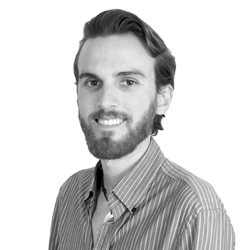The Government wants there to be a psychologist in every health center by October 2026.
The new Strategic Mental Health Plan is designed to address the exponential increase in mental illnesses that has been occurring for years.


PalmThe Government presented the Strategic Plan for Emotional Well-being and Mental Health this Thursday, aiming to address the significant increase in mental health conditions, giving greater importance to Primary Care and moving toward more local, community-based, and inclusive care. The President of the Government, Marga Prohens, accompanied by the Regional Minister of Health, Manuela Garcia; the Regional Minister of Education, Antoni Vera; the Regional Minister of Families, Social Welfare, and Dependency Care, Sandra Fernández; the Director General of Mental Health, Carme Bosch; and the Director of Early Childhood, Diversity Care, and Educational Improvement, Neus Riera, presented the plan to organizations working in the field of mental health in the Balearic Islands. One of the objectives is for all health centers in the Balearic Islands to have a psychologist by October 2026.
The immediate action is the imminent incorporation, on October 15, of 16 psychologists in health centers: nine in Mallorca, three in Menorca, and four in Ibiza and Formentera. This measure will be evaluated, and then the introduction of psychologists in all centers will be considered in 2026. The entire measure will cost €4.2 million. The professionals will be integrated into the healthcare teams, and direct appointments with them will not be possible; primary care physicians will refer patients based on needs. This measure will be evaluated next year, and its extension to all health centers on the islands will be considered. The strategy is part of a broader rollout, endowed with €16 million, that seeks to consolidate a more community-based healthcare model.
The plan comes in the face of a growing and worrying reality. According to Prohens, there are currently 185,000 people with some type of mental health problem, and a similar number are taking some type of medication. It is estimated that one in four people will suffer some disorder during their lifetime. The Prime Minister has warned about the "most dramatic, extreme, and silent scourge of suicide," recalling that in 2024, 90 completed suicides were recorded, 1,920 SAMU (National Health Service) operations were carried out for attempts, and more than 4,000 telephone consultations related to suicide risk. This situation highlights the urgency of changing the healthcare model, with Primary Care playing a "key role" in the face of the increase in disorders such as depression, anxiety, eating disorders, addictions, dual pathology, and emotional distress.
Across all the islands
The 16 new psychologists will begin working on October 15th, with a territorial distribution covering 18 health centers in Mallorca, including Son Cladera, Camp Redó, Son Rullán, Colonia de Sant Jordi, Arquitecta Benassar, Marratxí, Portocristo, Son Servera, and Pollença, three in Menorca, and four in the Piti Villas. This addition complements the 79 educational psychologists who, for two consecutive academic years, have provided services to secondary and state-funded schools, focusing on adolescent mental health and the early detection of risk situations. In total, 5,700 people—including students, teachers, and families—have been served through individual and group interventions tailored to the needs of each educational community.
The plan aims to overcome a fragmented model and move toward a comprehensive system where all levels of care work together. The Director General of Mental Health, Carme Bosch, explained that the challenge is to ensure that cases of emotional distress are addressed from the first contact with the primary care physician and are only referred to specialists when necessary, with the aim of preventing the problems from becoming chronic and reducing over-medicalization. She emphasized that the goal is not to provide psychologists in primary care only to meet demand, but rather to ensure that the system operates through efficient referrals.
The project is structured around several lines of action:
- Line 1. Coordination, management, and universal access to resources. It defines the mental health governance model with coordination mechanisms to improve accessibility and continuity of mental health care.
- Line 2. Promotion of emotional well-being and prevention. Establishes mechanisms for early detection and intervention in areas of emotional distress that pose a serious risk to mental health.
- Line 3. Promoting comprehensive, person-centered care tailored to each individual's needs, ensuring respect for human rights, with a specific focus on preventing, detecting, and addressing suicidal behavior.
- Line 4. Promoting well-being and prevention in children, adolescents, and youth, and strengthening mental health services.
- Line 5. Support for families and the community, encouraging their active participation in promoting mental health.
- Line 6. Continuing education for professionals and promoting social awareness to reduce stigma and improve skills in mental health care.
- Line 7. Research, innovation, and knowledge transfer, which serve as a driving force to improve the effectiveness of interventions and ensure a constantly evolving model.
As stated, it is a program open to professional input and adaptable to the reality of each island. The first working meeting that gave rise to this strategy took place a year and a half ago, and today the Government believes that progress has been made toward a solid yet flexible structure that allows for adaptation to the needs of each territory and strengthens care for the most vulnerable groups. The ultimate goal is to build an integrated, efficient, and humane mental health network capable of responding to a growing problem without losing proximity to the public. With this deployment, the Balearic Islands aspire to establish themselves as a benchmark in the incorporation of mental health into Primary Care, with healthcare, education, and third-sector professionals working in coordination and adapting to the needs of each island.
